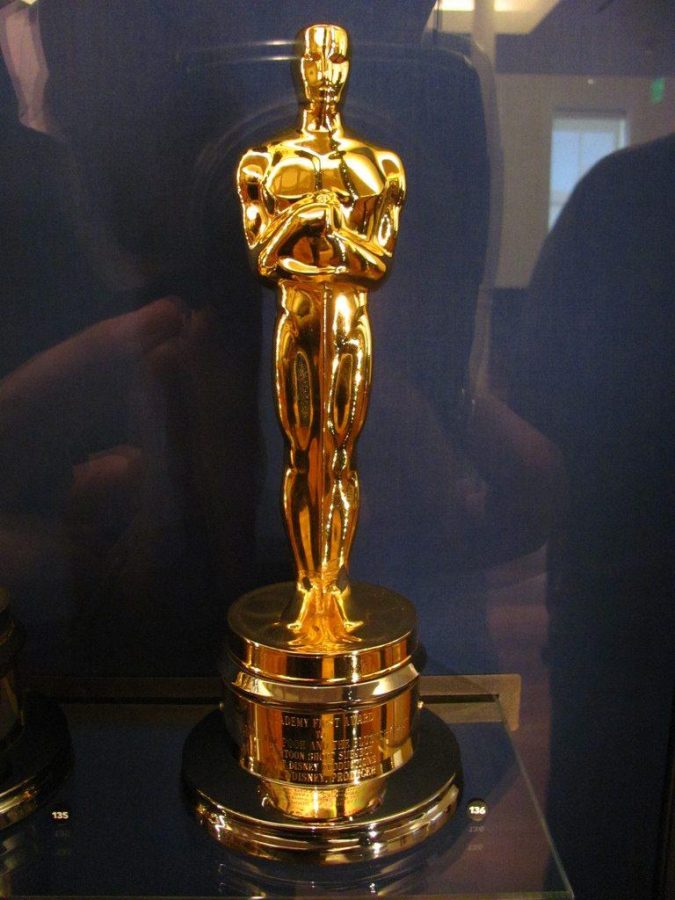The Academy Award nominations were announced on January 23. In this new series, Josh Petersen will be watching all of the Best Picture nominees and writing about the good, the bad and the ugly in each nominee.
Now in theaters: a controversial, corrupt president attacks the free press and is fanatically opposed to any criticism. This probably sounds familiar to anyone who’s picked up a newspaper in the past year, but the film in question is not a documentary, nor is it directly about today’s political challenges at all. “The Post” directed by Steven Spielberg depicts the Washington Post’s publication of the “Pentagon Papers” in 1971, turning journalistic ethics and the publishing process into edge-of-your-seat entertainment. But even as the film leaves its political connections unspoken, the implications are depressingly obvious. Yes, the film points out that both then and now, there have been brave resistors willing to defend the truth. But still, it is sad that we are back to fighting the same fight more than four decades later.
“The Post” begins in 1965 as US military analyst Daniel Ellsberg (Matthew Rhys) is frustrated by the government’s obvious lies about the Vietnam War. In one telling scene, Secretary of Defense Robert McNamara (Bruce Greenwood) bluntly acknowledges to Ellsberg that Vietnam is probably impossible to win then immediately tells reporters that progress is being made. In response, Ellsberg methodically copies thousands of classified reports, and leaks them to the New York Times. However, a court injunction prevents the Times from further publication, sparking outrage over possible violations of press freedom. Meanwhile at the Washington Post, the paper’s first female owner Katherine Graham (Meryl Streep) attempts to balance the challenges of her new position. Her job becomes even more complicated when she must decide whether to publish more leaks from the Pentagon Papers — even if it places the future of her newspaper at risk.
Is it officially redundant at this point to call Meryl Streep great? Maybe, but it is worth repeating again: Streep is great in “The Post.” Her work is gentle and understated, a clever contrast to the brash energy of her male colleagues (particularly a charming-as-usual Tom Hanks.) Underneath an air of grace, she gives gravity to her character’s serious pressures. Like any woman breaking new ground, Graham is simultaneously underestimated and held to an impossible standard. She also has to navigate the ethical and logistical challenges of publishing the Pentagon Papers. One of the fascinating aspects of “The Post” is its depiction of a journalistic sea change: one where journalists and politicians are no longer friends or trusted allies. Throughout these challenges, the film allows her to be conflicted and complicated, taking her seriously in a way that is still rare in mainstream cinema. In Graham, Streep finds the inherent drama in both the personal and historical.
Though plenty of material in “The Post” feels startlingly relevant, the film’s depiction of a robust newspaper operation is basically a historical artifact. As print journalism teeters on the brink of extinction, many images carry an unspoken poignancy. The film’s final act revels in the newspaper’s physicality: the moving of the press, the setting of type, the bundles of papers thrown out for delivery. In one climactic moment, the press rumbles to life, printing thousands of papers as the staff above knows what that rumble will mean for Graham, for the paper and for democracy itself. It could be argued that Spielberg’s admiration for journalists can blur into hagiography, but moments like these carry an appealing ethical and narrative purity. It feels nice to cheer for some real-life superheroes.
With its A-list pedigree, historical plot line and traditional filmmaking, this film seems like an obvious slam-dunk for Awards Season recognition. Surprisingly, however, “The Post” has gained little recognition in this area. In his Golden Globes monologue Seth Meyers joked that the film was a painfully obvious shoo-in for victory, but by the end of the night, it didn’t win a single award. This is a shame, as the film’s argument for female power and democratic justice feels like a human antidote to current crises in Washington and Hollywood. Attempting to understand why certain films come out on top during awards season is a fool’s errand, but with “The Post,” I wonder if its decorum is hopelessly out of vogue. We are living in angry times, and perhaps that calls for angry movies. It’s true that this film is more of a careful news report than a scorched-earth editorial. But, as “The Post” will probably remind you, good writing is good writing.
j.petersen@ustudentmedia.com
@JoshPetersen7



Steve in Saratoga • Feb 19, 2018 at 2:16 pm
I enjoyed reading Josh’s analysis of The Post, nearly as much as I enjoyed watching the movie. To plagiarize from the article, “Good writing is good writing”